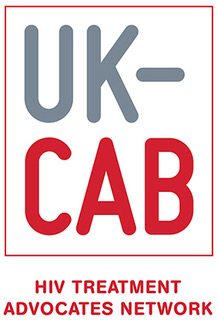6. Psychological care
The Standards for psychological care for people living with HIV use the following terms:
Emotional wellbeing: this is how we feel and cope with the ups and downs of everyday life. It’s also about how we feel about living with HIV. It can include feelings about HIV stigma or telling people about HIV. It’s also about other things that HIV may or may not impact on. This could include things such as family and friends, relationships and sex, employment and society. In fact, it’s about anything that’s important to our confidence and self-esteem.
Mental health: although we all have good and bad days, sometimes the way we feel, think and behave can seriously stop us from living life well. Poor mental health can include anxiety or depression. It can also include post-traumatic stress disorder, or poor sleep. Some people with mental health difficulties experience suicidal thoughts. They might also injure themselves, or use alcohol or drugs, to cope with stress.
Cognitive function: this is about the health of our brain. It includes things like memory, concentration, using words and solving problems. If we have cognitive difficulties, we might forget things, be slower, or get confused easily. We might find it difficult to do the things we used to be able to do easily, like taking medication, or attending appointments.
6a. Emotional wellbeing
People living with HIV may sometimes experience stigma from society in general, and even from some healthcare workers and support staff. Sometimes these experiences can make people feel ashamed, guilty or bad about themselves. If this happens to you, let your healthcare team know and they can help you find professional support to help with this.
It might be difficult to talk about, but you can also ask for help if you experience bullying or violence from your partner, or people you work with.
Living with HIV means managing a chronic condition. For some people, this can lead to feeling down, anxiety or stress. This could affect your HIV if, for example, you miss clinic appointments or don’t take your antiretroviral treatment (ART) in the right way. It could also affect your wider life too, for example in your relationships with family and friends. You can ask your healthcare team for advice and support to help with such issues, if needed.
Modern HIV treatment is much easier to take, with fewer side effects, than earlier HIV treatment. Some people are happy and able to take more control over their own HIV care. If this isn’t the case for you and it is causing further stress, please let your healthcare team know. You can also ask for help from your partner, friends, family or others in your community. Peer support gives you the chance to share experiences with other people living with HIV. This can also help you manage your health better.
Peer support can be provided through face-to-face meetings, online, telephone or group support. Peer support provides HIV treatment awareness and understanding. It includes things like newly diagnosed courses, patient networks, social gatherings, charitable organisations and also NHS HIV services.
Getting the right support is important for everyone living with HIV. With good support, many people living with HIV manage their physical, mental and emotional wellbeing effectively, showing strength, growth and resilience. But if you are struggling, don’t forget that you can ask for help and support – that is what the services are there for.
Key messages
You should be able to have:
Regular monitoring for possible challenges of living with and managing HIV.
Access to support for emotional wellbeing, including information about services and social support, that can help before problems start, or before they get worse.
Access to peer support services.
